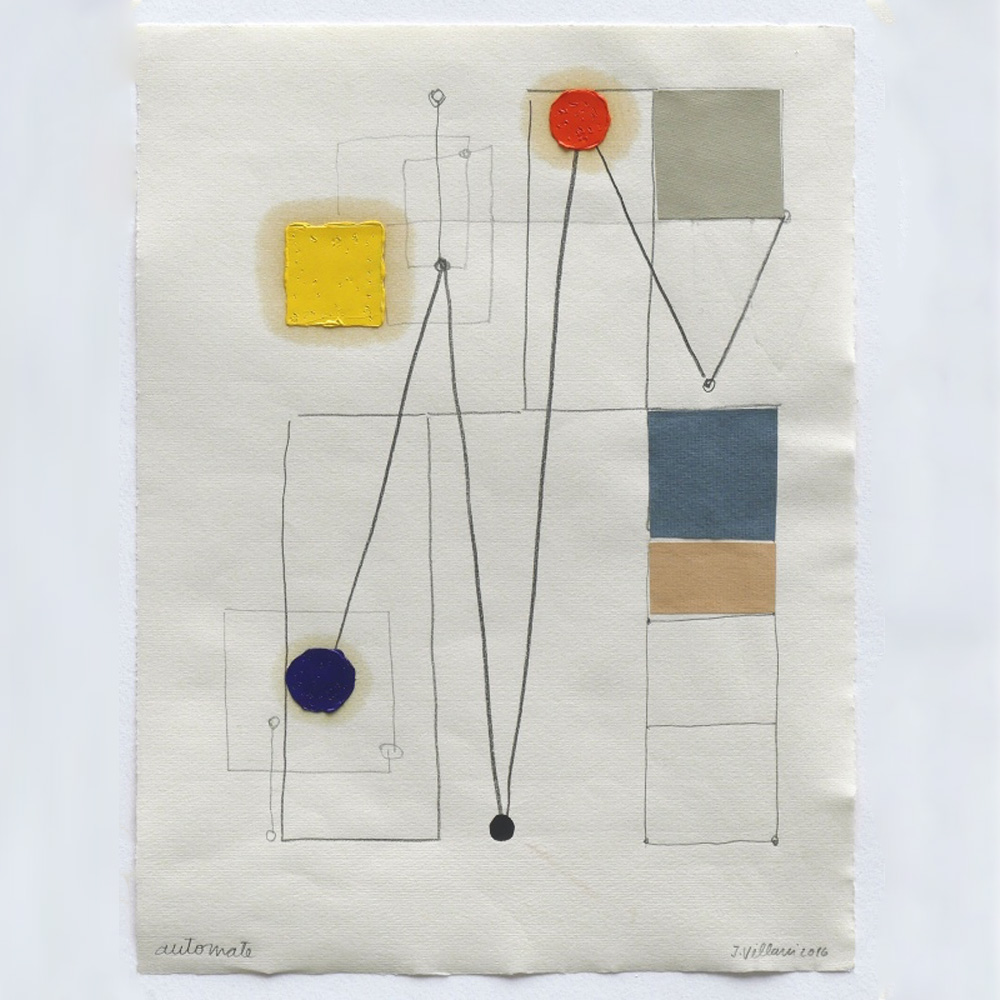julio villani_ alinhavai
jun 15 - 17 aug_2019

How to orient yourself in Júlio Villani’s gentle labyrinth? There must be ways and means, of course, but one of them might be to invert Ariadne’s method and follow a thread not to leave but to enter, ever more, into the heart of this maze of works of very different appearance. One can pull one of the very material threads that the artist smuggles in from other domains: sewing or embroidery threads, strings, straps, belts, and wires, sometimes accompanied by spindles, spools, or benches that suggest sewing machines; in all these cases, threads from vernacular practices that Villani simultaneously incorporates and displaces. Or you can choose to follow the course of these thin threads that are the lines traced on the surface of the paper or canvas, a clue that will lead us to draw as a fundamental gesture in Villani’s work, whether bi- or three-dimensional. With one caveat, however: drawing here is not the traditional, demiurgic gesture of generating creatures from formless matter, canvas, or blank sheet. The threads and lines that Villani traces (stretch, hang, extend) serve rather connect (bind, tie, entwine), to suggest constellations of beings, forms, and regions of experience that seemed to be separated until then. Constellations, not constructions: contrary to hierarchies, they are driven by memory and eroticism, which do not pretend to change dimensions and purposes, misalign the aligned, convert writing into drawing, redeem the remains of things, giving them a new life, both unstable and superlative – often literally hanging by a thread. The operation is complex, and behind each “balcony” or “trouvaille”, a long process of synthesis is foreseen. Synthesis of an artistic apprenticeship that comes from surrealism and passes through the new avant-gardes of the 60s and 70s, but which also comes and goes through a recovery of certain Brazilian art and a past that is both intimate and inland; synthesis, finally, between the boy from Marília and the artist from Paris. On second thought, why leave the labyrinth, where there are so many doors yet to open?
Samuel Titan

